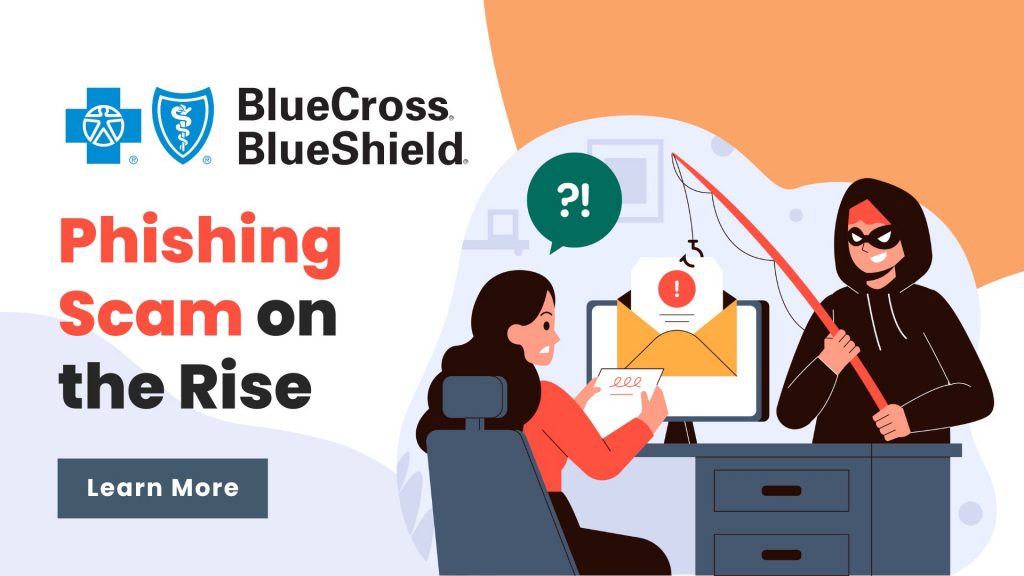Blue Cross Blue Shield Phishing Scam on the Rise

Blue Cross Blue Shield (BCBS) phishing emails are fraudulent messages designed to trick recipients into providing personal information, such as login credentials, Social Security numbers, or financial details. These emails often appear to come from BCBS but are actually sent by scammers aiming to steal sensitive data.
Common Tactics Used in BCBS Phishing Emails:
- Fake Account Alerts – The email may claim there’s an issue with your BCBS account, such as suspicious activity or a need to update your information.
- Urgent Payment Requests – Scammers may say you owe money for coverage or claim a payment failed, urging you to click a link.
- Fake Benefits or Refunds – Some phishing emails promise refunds, benefits, or changes to your health plan, requiring you to enter personal details.
- Malicious Links or Attachments – These emails often include links that lead to fake BCBS login pages or attachments containing malware.
- Spoofed Email Addresses – The sender’s email address may look official but often has subtle misspellings or extra characters (e.g.,
support@bcbs-secure.cominstead ofsupport@bcbs.com).

How to Spot and Avoid BCBS Phishing Emails:
✅ Check the Sender’s Email – Verify the email address carefully. Official BCBS emails come from legitimate domains.
✅ Look for Typos & Grammar Mistakes – Many phishing emails contain odd phrasing, spelling errors, or unprofessional formatting.
✅ Hover Over Links (But Don’t Click!) – Hover your mouse over links to see the actual destination URL. If it looks suspicious, don’t click.
✅ Never Enter Personal Info via Email – BCBS will never ask for sensitive data like passwords, Social Security numbers, or banking details via email.
✅ Contact BCBS Directly – If you’re unsure, call BCBS using the official number on their website, not the one in the email.
What to Do If You Receive a BCBS Phishing Email:
📌 Do NOT Click on Any Links or Attachments
📌 Report the Email – Forward phishing emails to BCBS’s fraud department or report them to the FTC at reportfraud.ftc.gov.
📌 Delete the Email Immediately
📌 Monitor Your Accounts – If you accidentally clicked a link, change your BCBS password immediately and watch for unauthorized activity.
Always stay cautious—cybercriminals keep improving their scams, but with awareness, you can protect yourself from falling victim! 🚨



